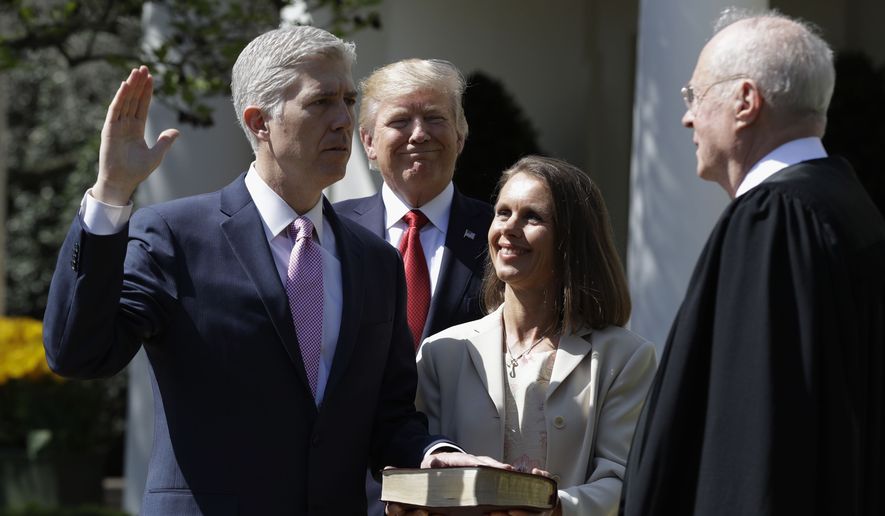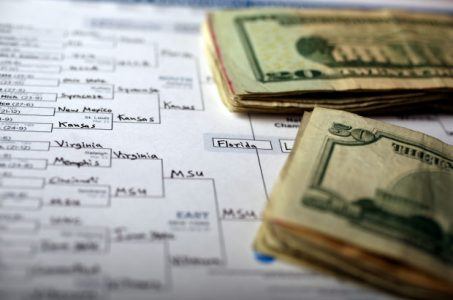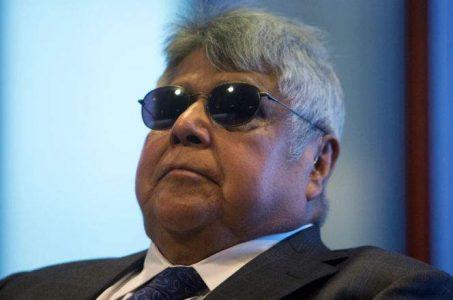Newly Appointed Supreme Court Justice Neil Gorsuch’s Impact on Sports Betting Could Be Significant
Posted on: April 11, 2017, 10:00h.
Last updated on: April 11, 2017, 10:27h.
US Supreme Court Associate Justice Neil Gorsuch was sworn into the nation’s highest and most powerful bench this week, breaking a 4-4 gridlock between liberal and conservative-leaning justices, and potentially paving the way for a new day in American gaming law.

Sports betting and online gambling proponents might justly see his appointment to the court as a win. That’s because Gorsuch could potentially hold the cards in determining whether the status of the current federal ban on sports betting is justifiable or not. That could also fan out to include general online gambli
A longtime Republican and strict follower of the US Constitution, Gorsuch is expected to be an advocate for states’ rights, as was his predecessor, former Supreme Court Justice Antonin Scalia.
Gorsuch has explained in the past that the US Constitution supersedes his personal viewpoints, and his rulings following the law, not his opinions.
“A judge who likes every outcome he reaches is very likely a bad judge,” the 113th justice of the Supreme Court said earlier this year.
Whole New Game
At just 49 years old, Gorsuch will presumably serve on the high court for decades to come, barring illness or another catastrophic event. That’s important to Republicans, who felt the court was becoming too politicized, and too left-leaning. Many believe President Donald Trump’s election benefited from that vacancy of the court, and the incoming president’s power in appointing the next justice.
While gambling legislation is certainly not a position typically embraced by conservatives, Gorsuch’s unwillingness to bend the law to support his own beliefs could work in internet gaming and sports betting’s favor.
A host of topics relevant to gambling might land in the Supreme Court in the coming years. Ranging from whether college athletes should be paid (which the Court has already once declined to hear), to deciding if online gambling should be left to the states, various concerns could reach the Supreme Court.
The most important one to the gaming industry is the controversial issue of sports betting, of course.
The Professional and Amateur Sports Protection Act of 1992 (PASPA) outlawed gambling on sports in the US, with exceptions provided for Nevada, Oregon, Montana, and Delaware. Today, only Nevada takes full advantage of its immunity.
The federal law, signed by then-President George H.W. Bush, has been challenged by New Jersey. The Garden State wants to legalize sports betting at its racetracks and Atlantic City casinos, but has been blocked from doing so by the Third District Court.
New Jersey has petitioned the US Supreme Court to hear its argument. The court has asked the next US Solicitor General to file a brief on the federal government’s view of the sports betting plight. Often called the 10th justice, President Trump has nominated Noel Francisco to the office, and is awaiting confirmation.
Tenth Amendment Reigns Supreme
New Jersey has two arguments to make in trying to convince the Supreme Court to take the sports betting case.
First, the state says PASPA is discriminatory in nature in that it allows four states to engage in sports betting, while blocking 46 others. Second, and perhaps more vital, is the Tenth Amendment and the concept of federalism.
The Tenth Amendment dictates, “The powers not delegated to the United States by the Constitution, nor prohibited by it to the states, are reserved to the states respectively, or to the people.” In layman’s terms: issues not covered by the Constitution are to be determined by the states.
Sports betting, and online gambling, perhaps fall into that category.
Though there are worthy factors that might entice the Supreme Court to hear gambling-related issues, the justices are bombarded by potential cases, so any one cause has a slim chance of being heard. Statistically, the high court takes only about one percent of the cases it’s petitioned to take.
Related News Articles
Sports Betting Legalization Scores Slam Dunk Thanks to March Madness
Seminole Tribe Warns Florida Legislators That DFS Bill May Violate Compact
Most Popular
Mirage Las Vegas Demolition to Start Next Week, Atrium a Goner
Where All the Mirage Relics Will Go
Most Commented
-
Bally’s Facing Five Months of Daily Demolition for Chicago Casino
— June 18, 2024 — 12 Comments -
Chicago Pension Mess Highlights Need for Bally’s Casino
— July 2, 2024 — 5 Comments
















No comments yet